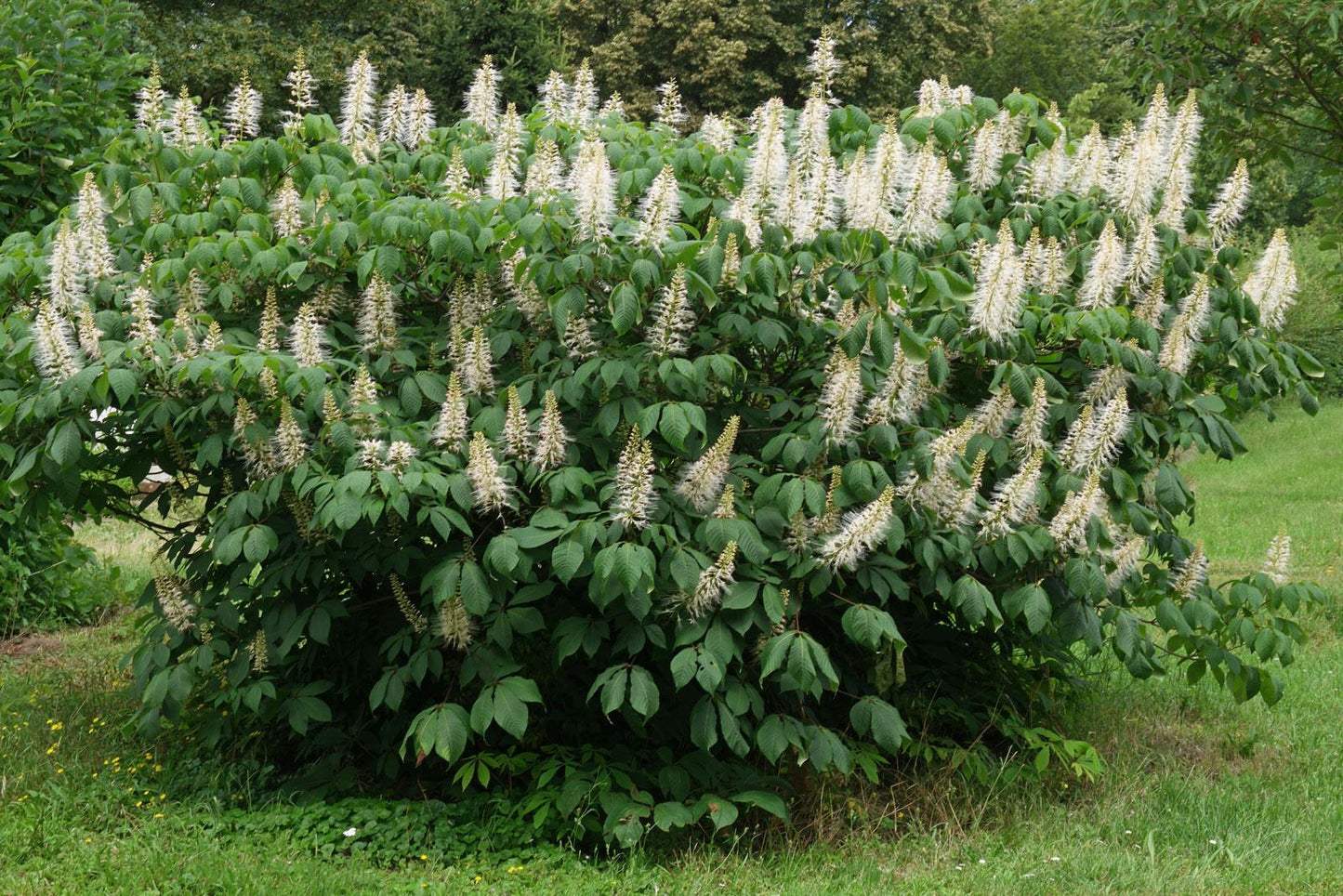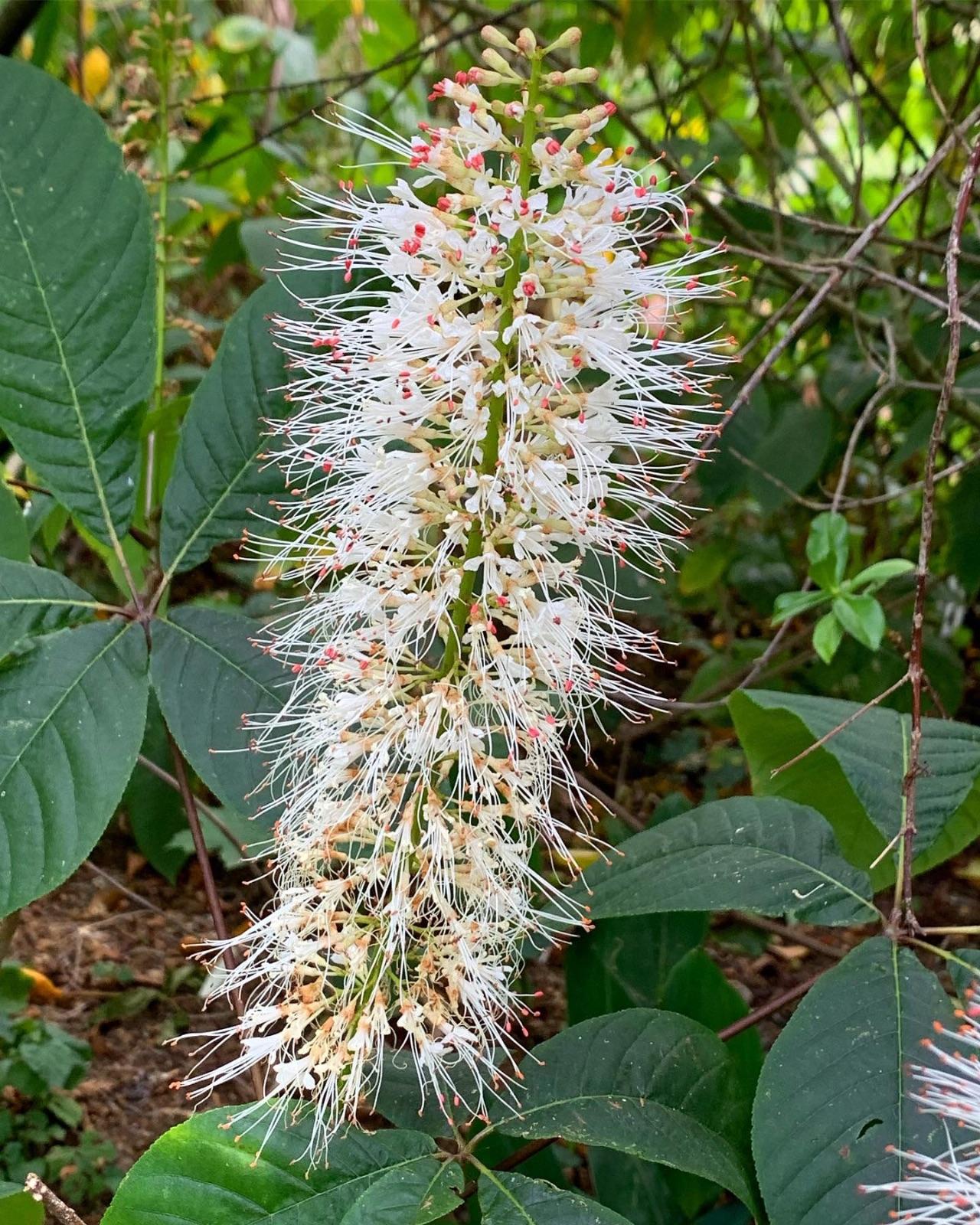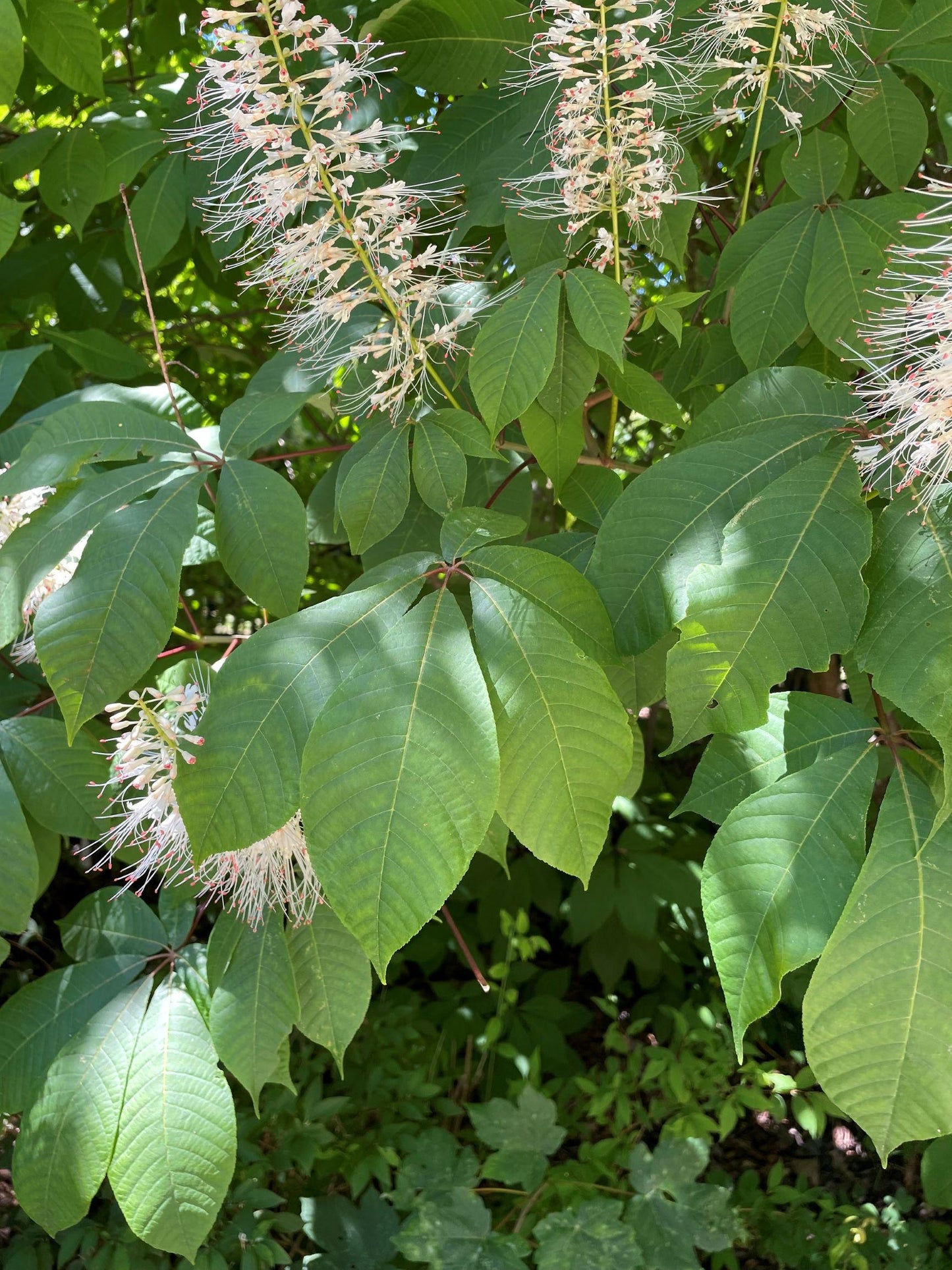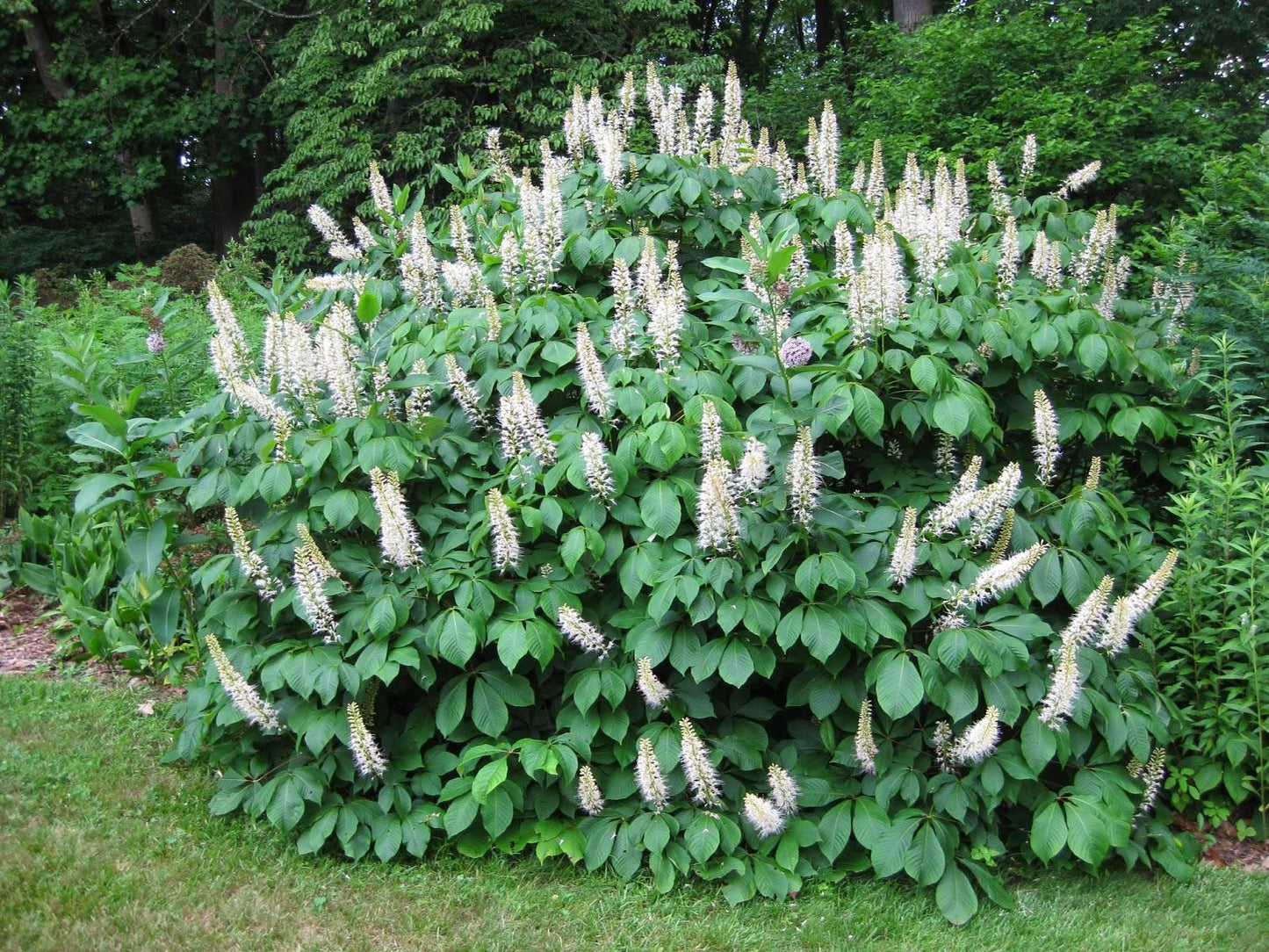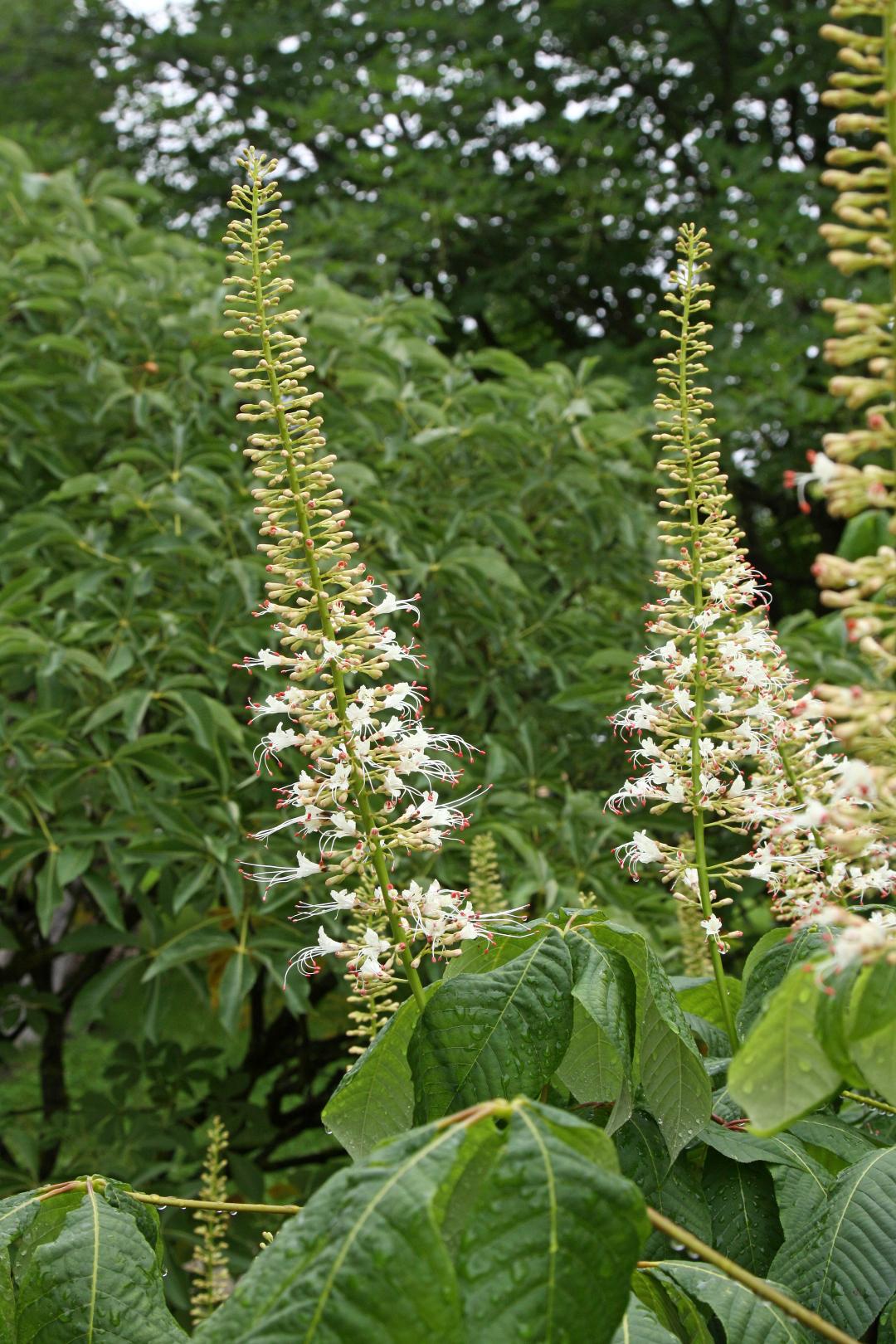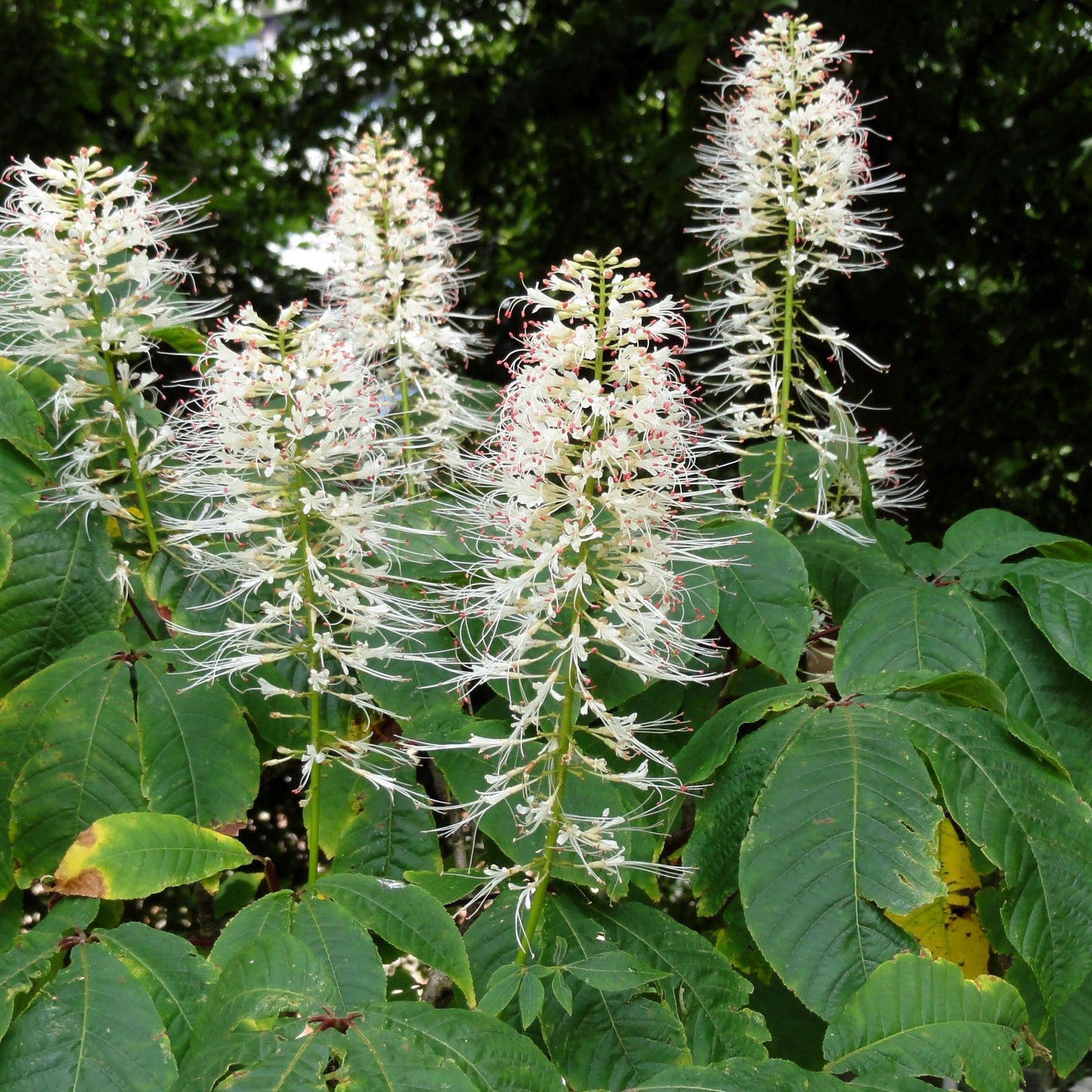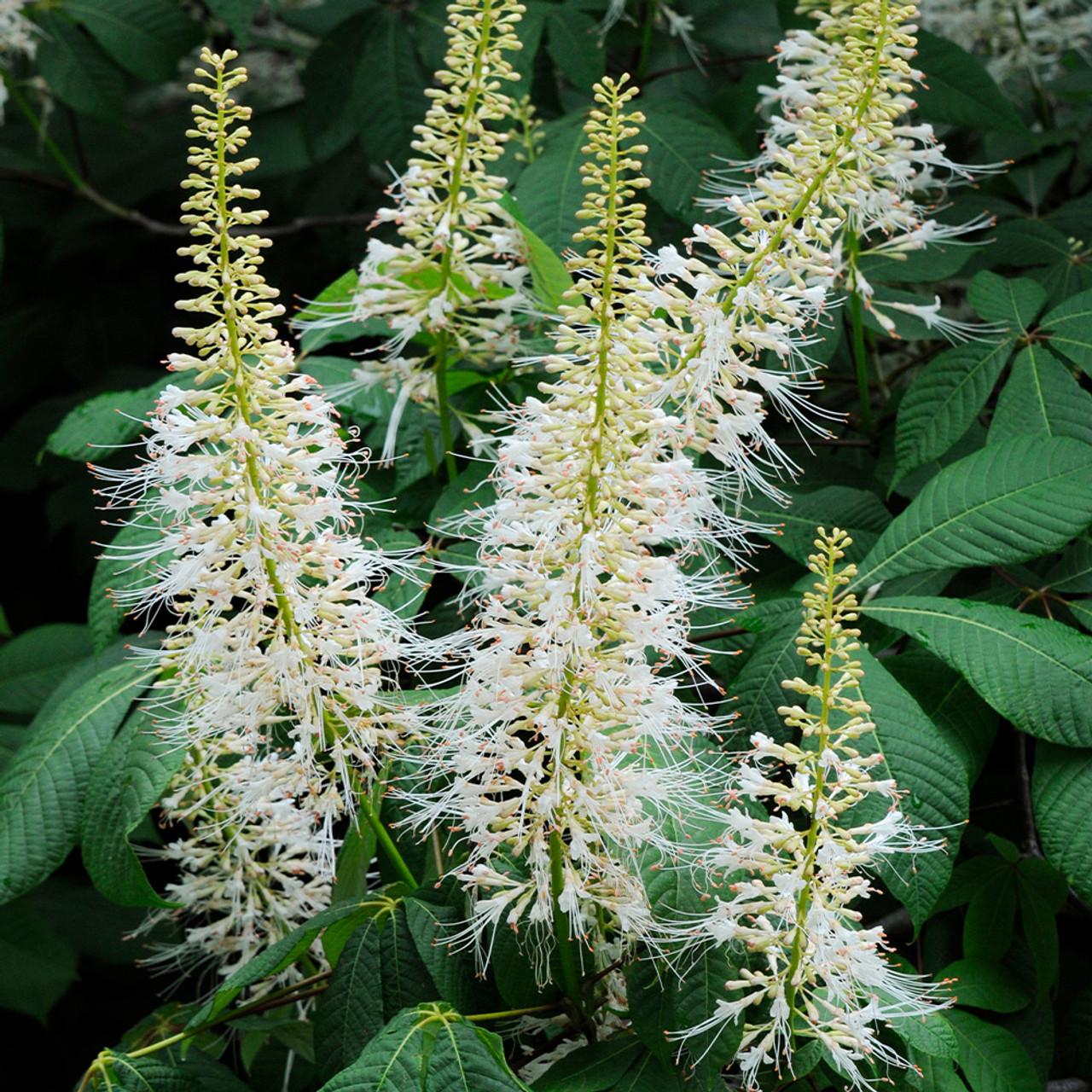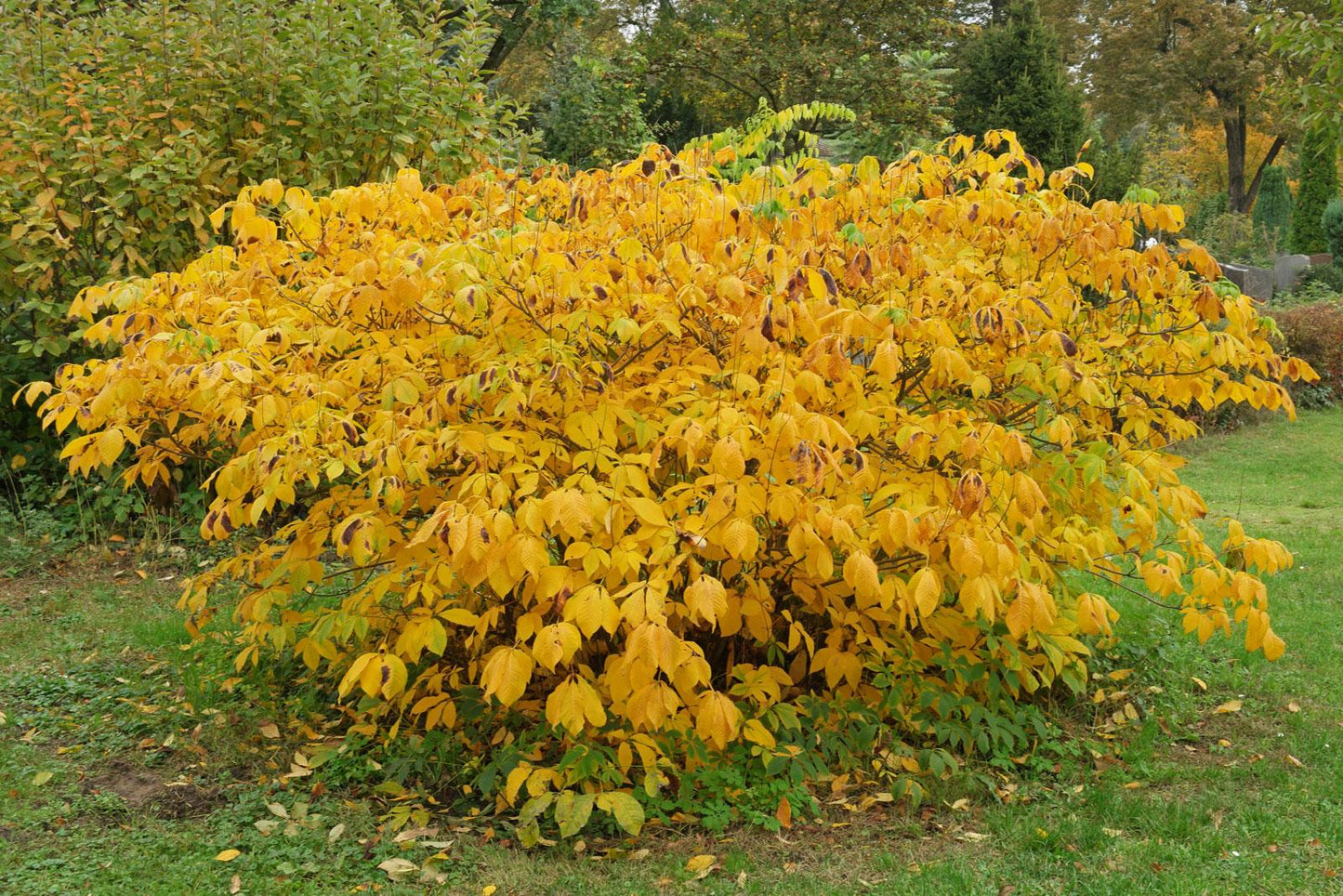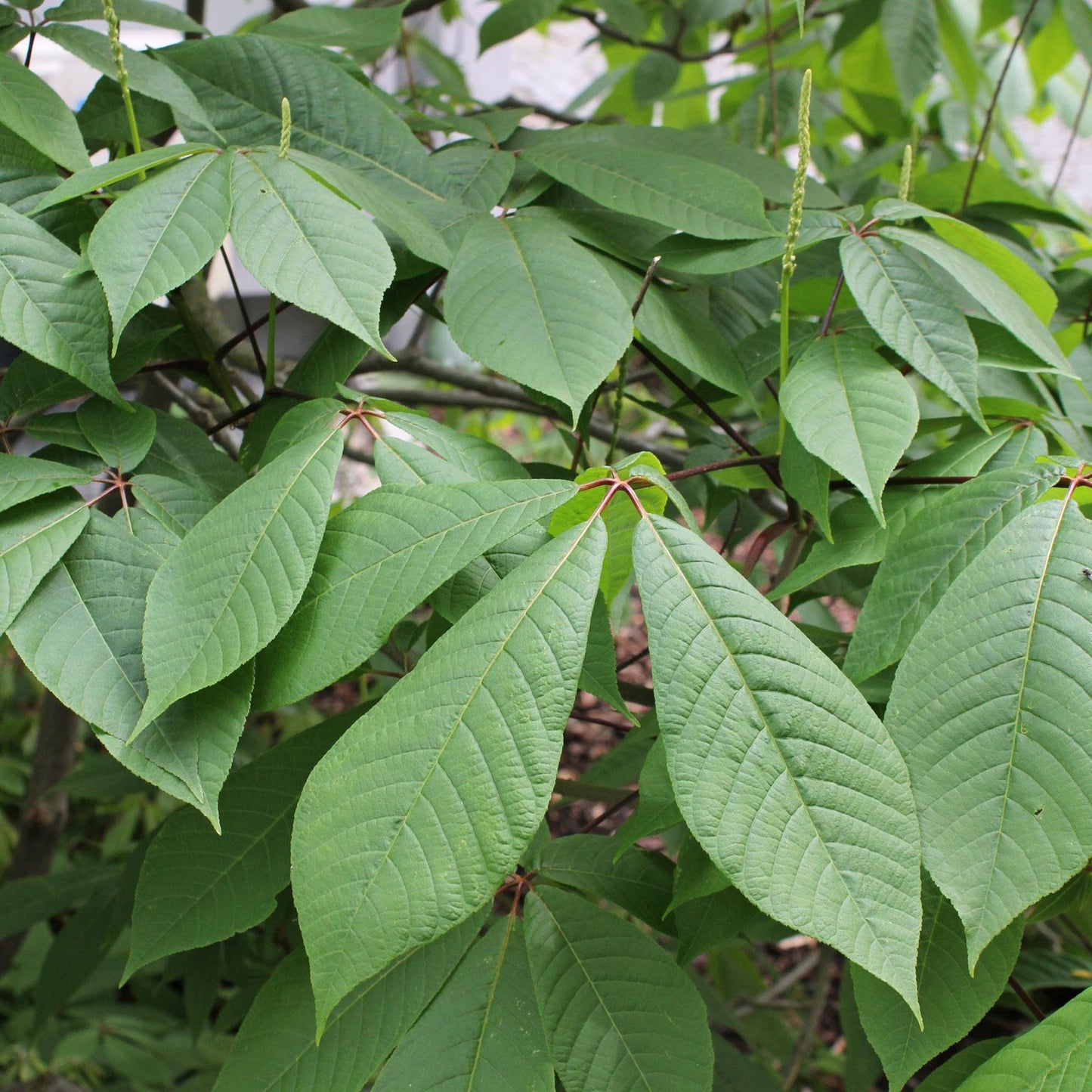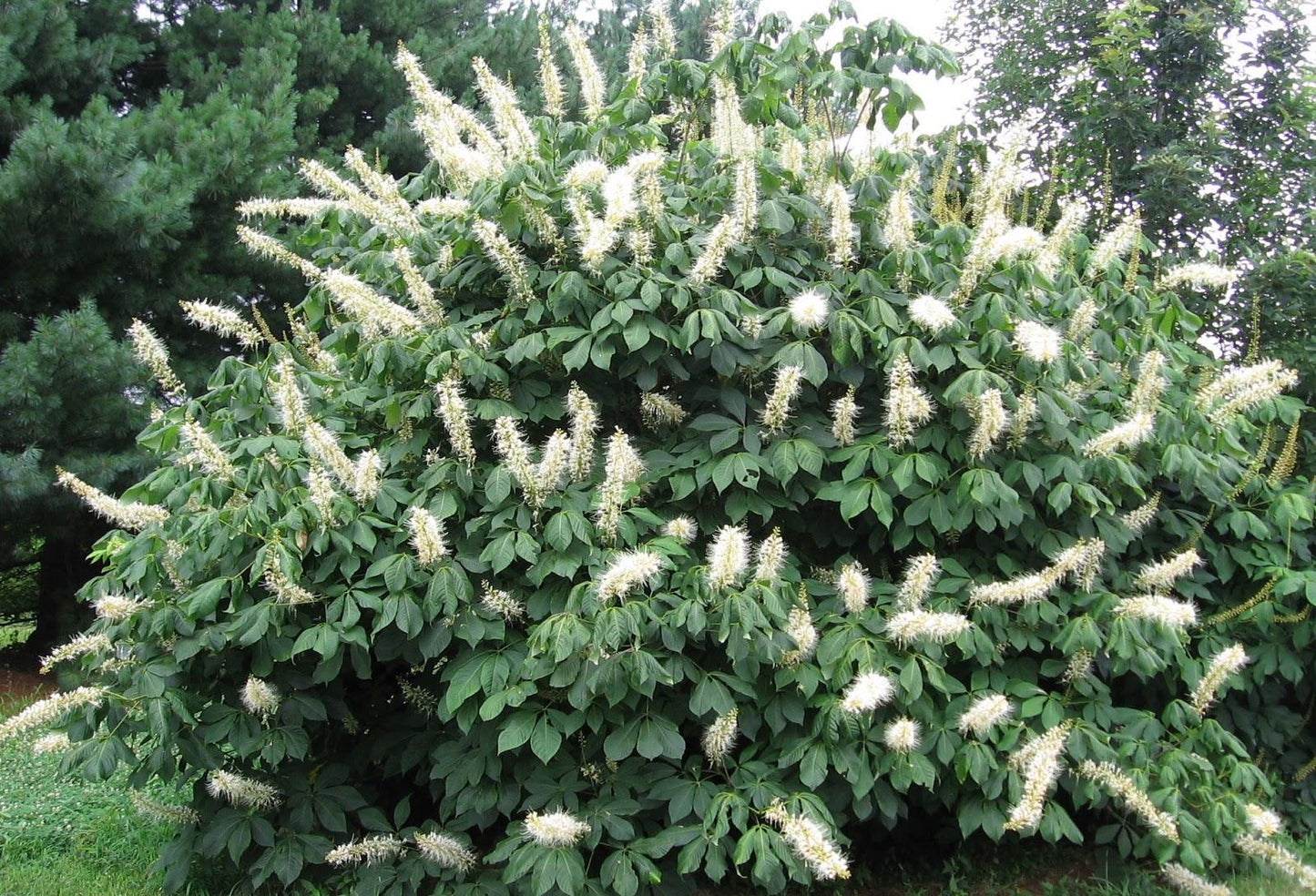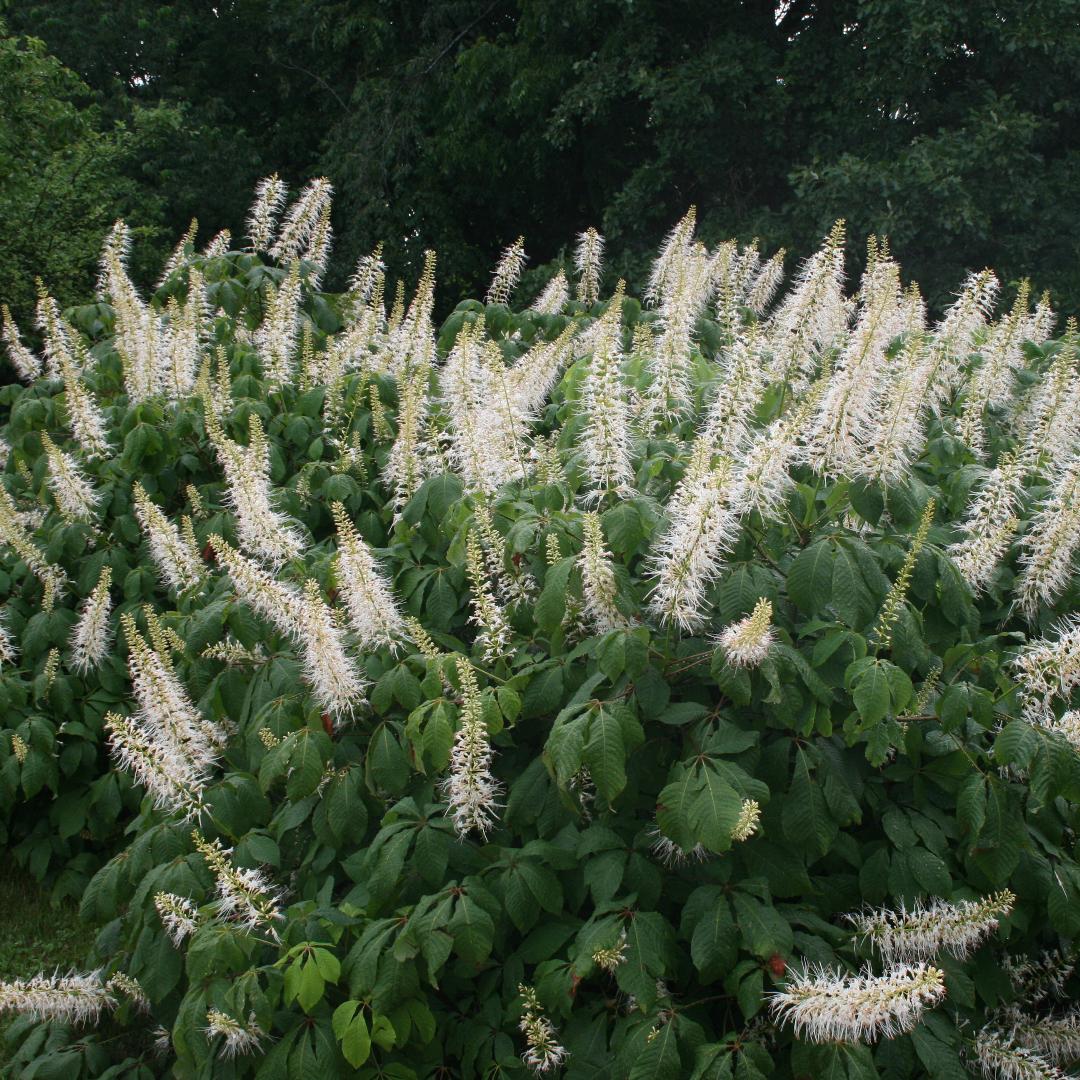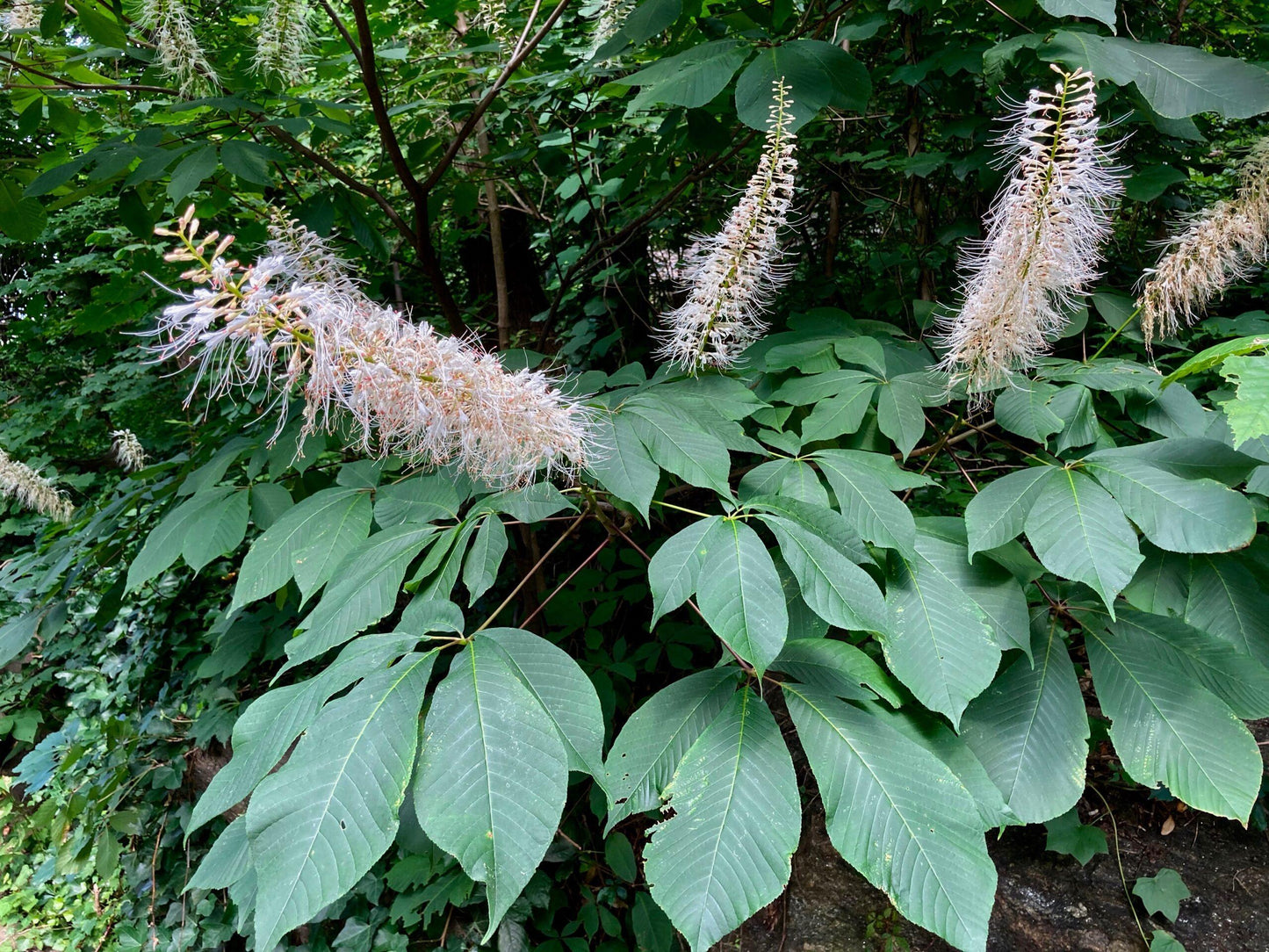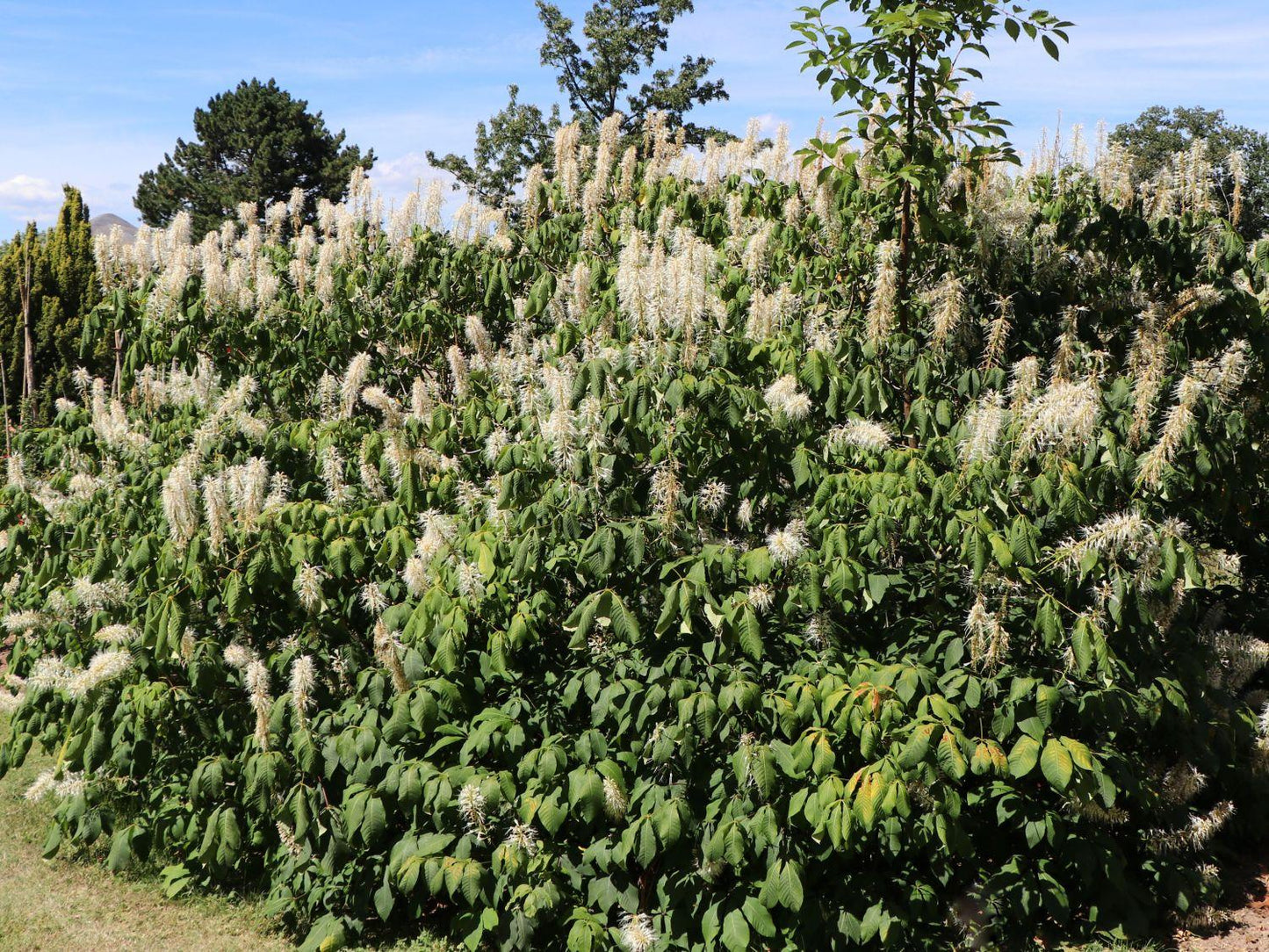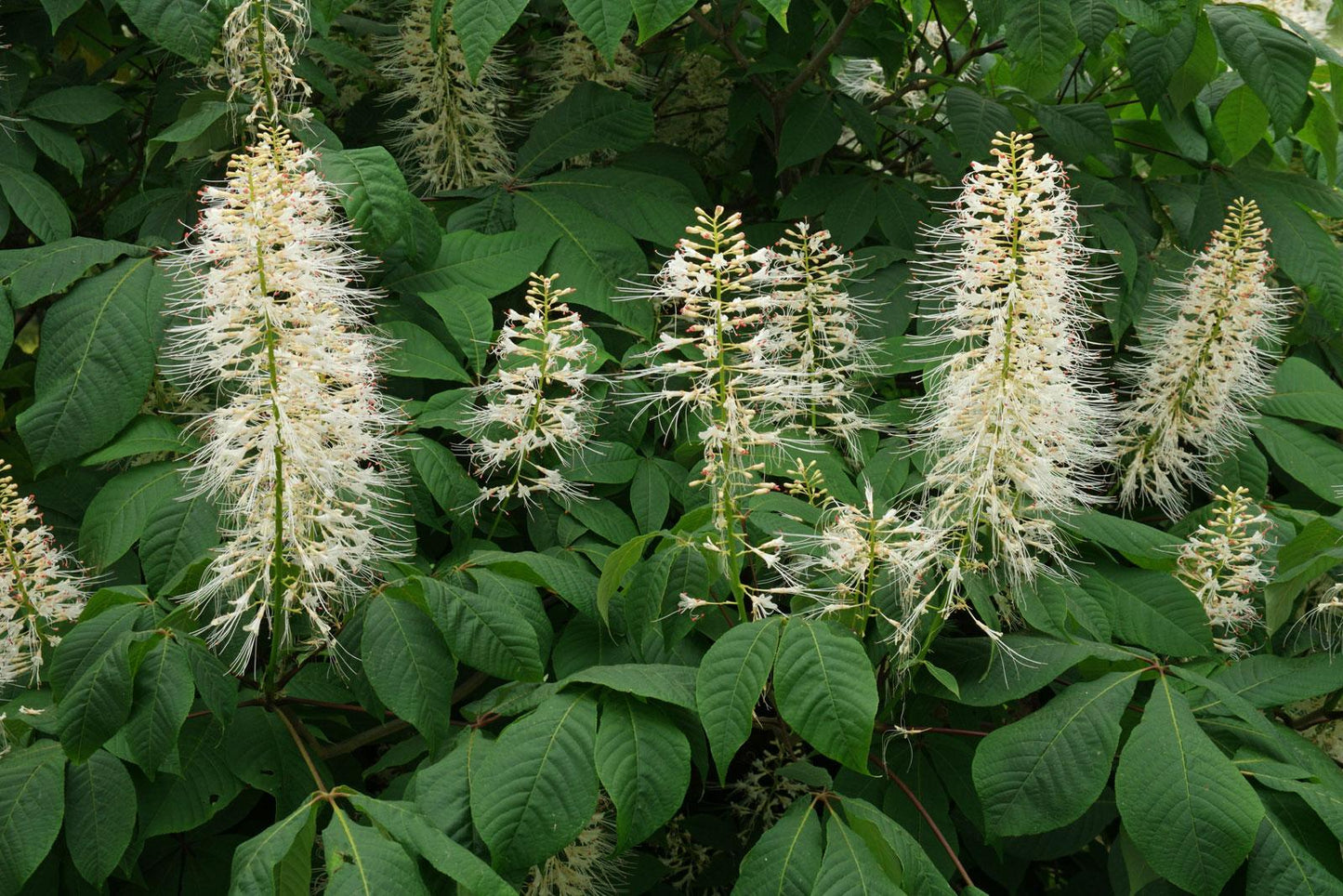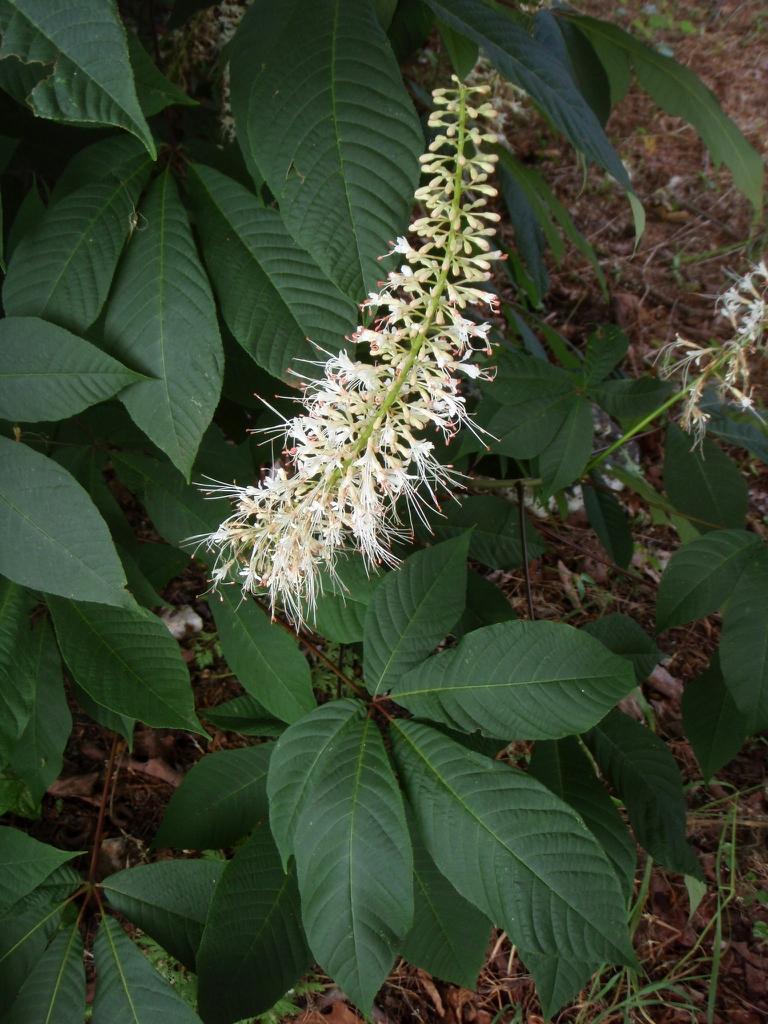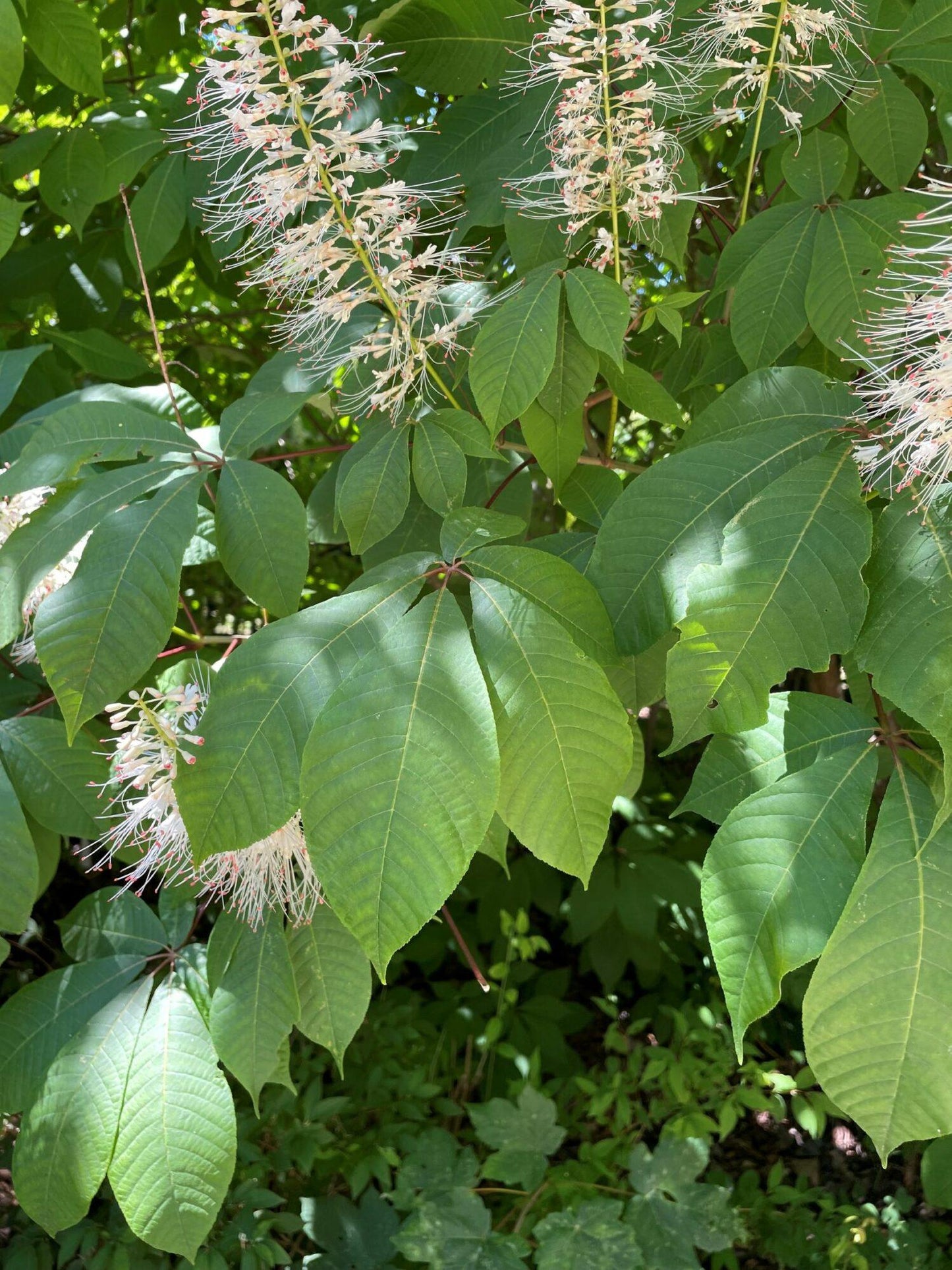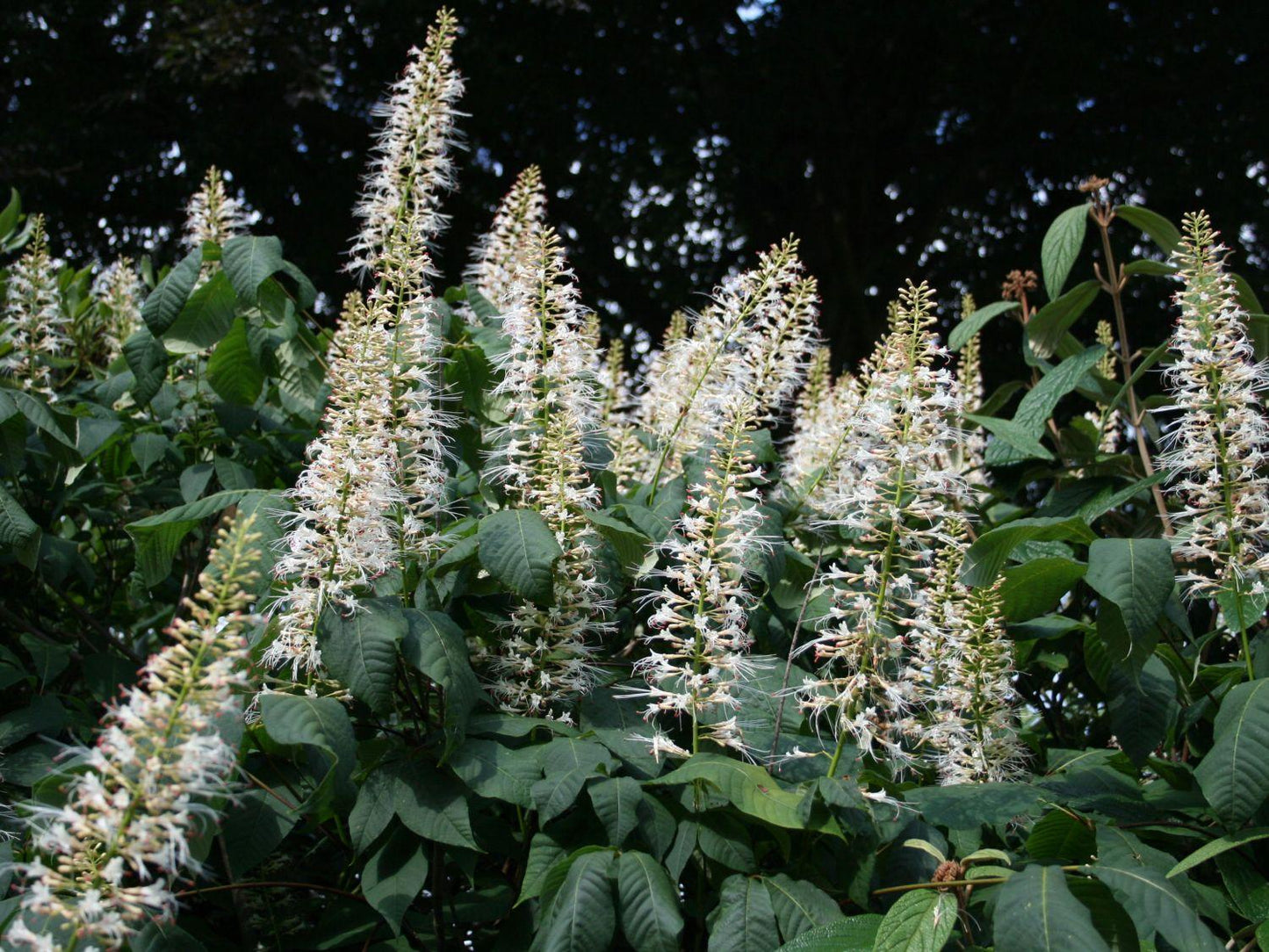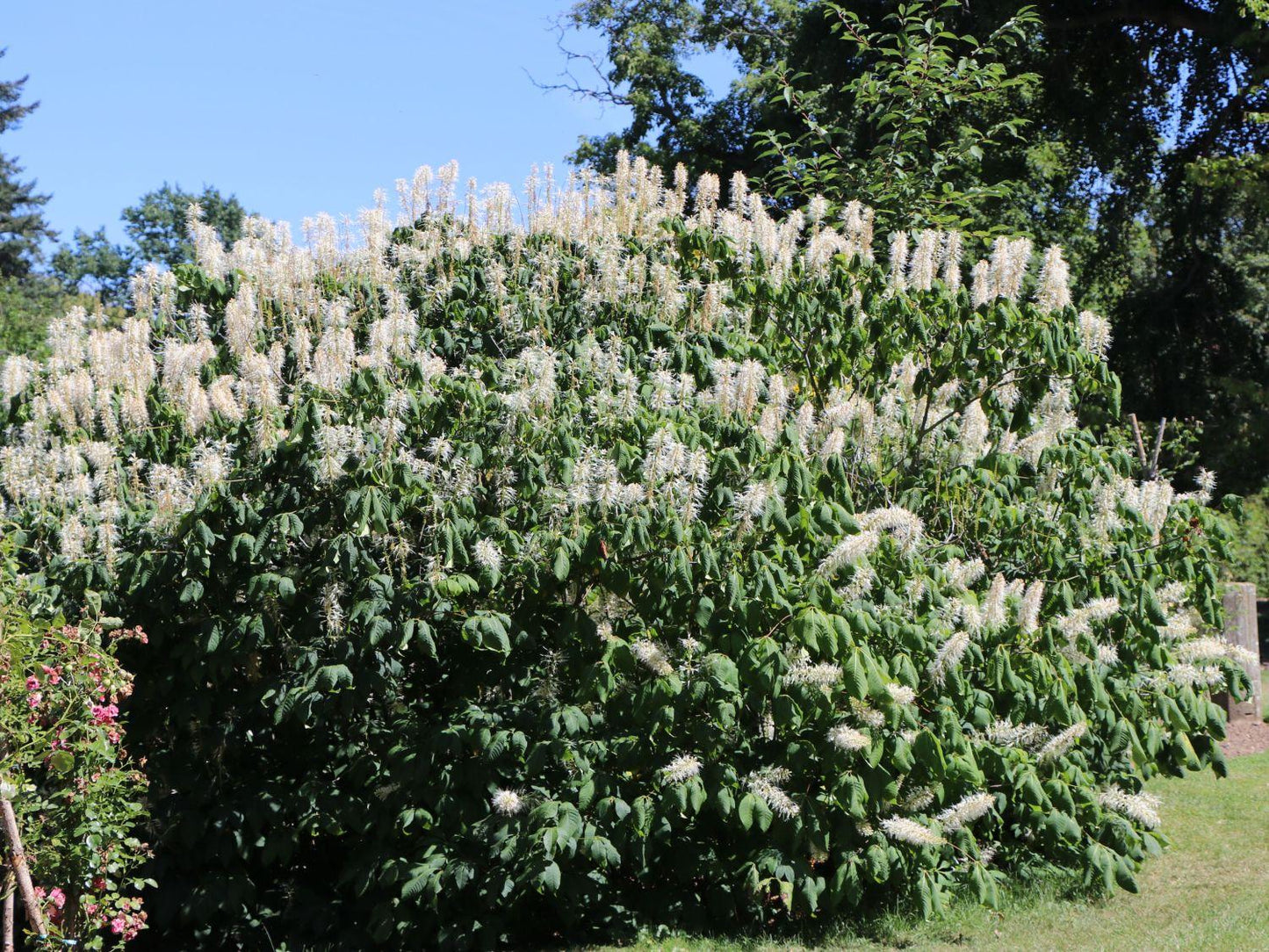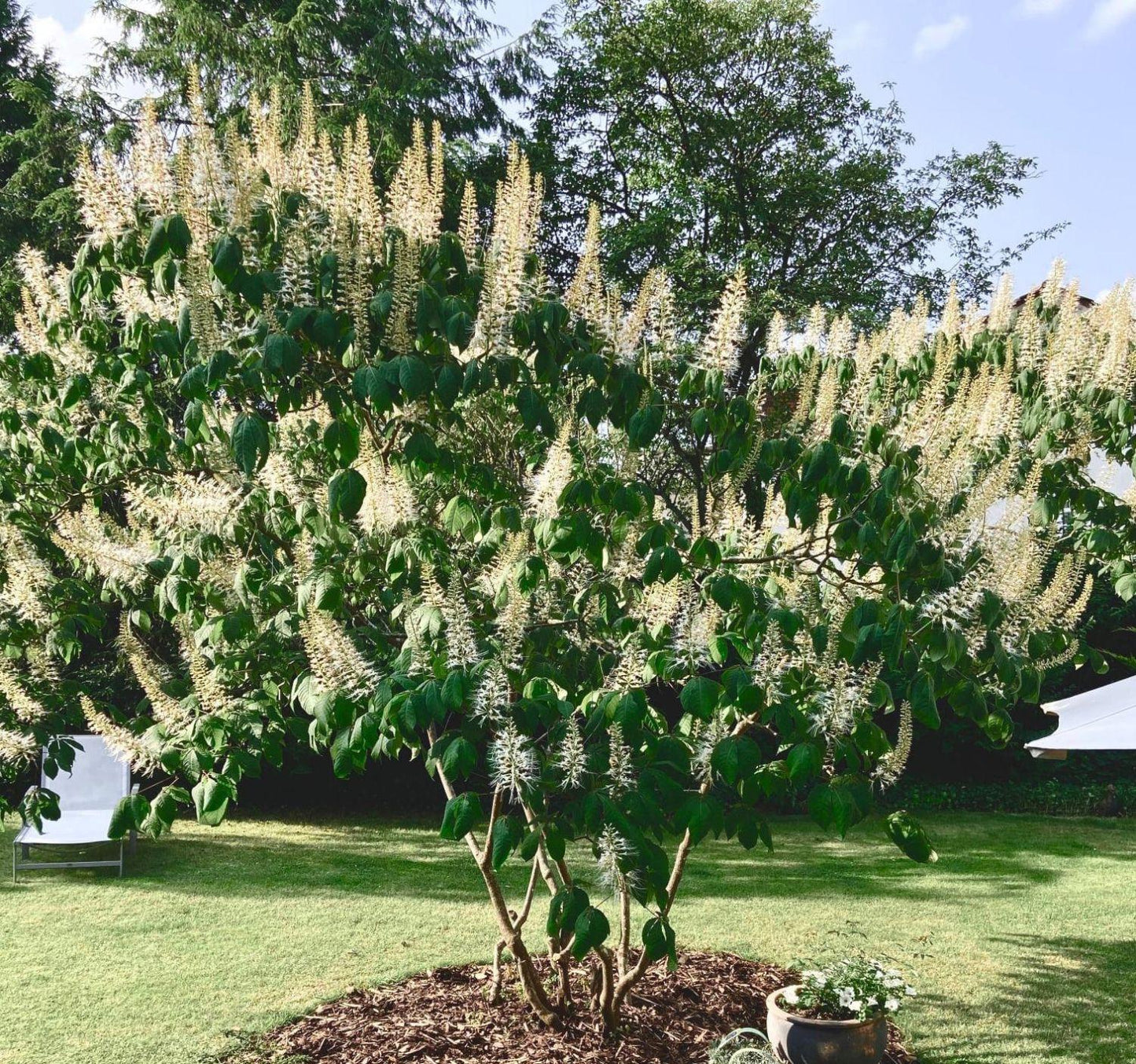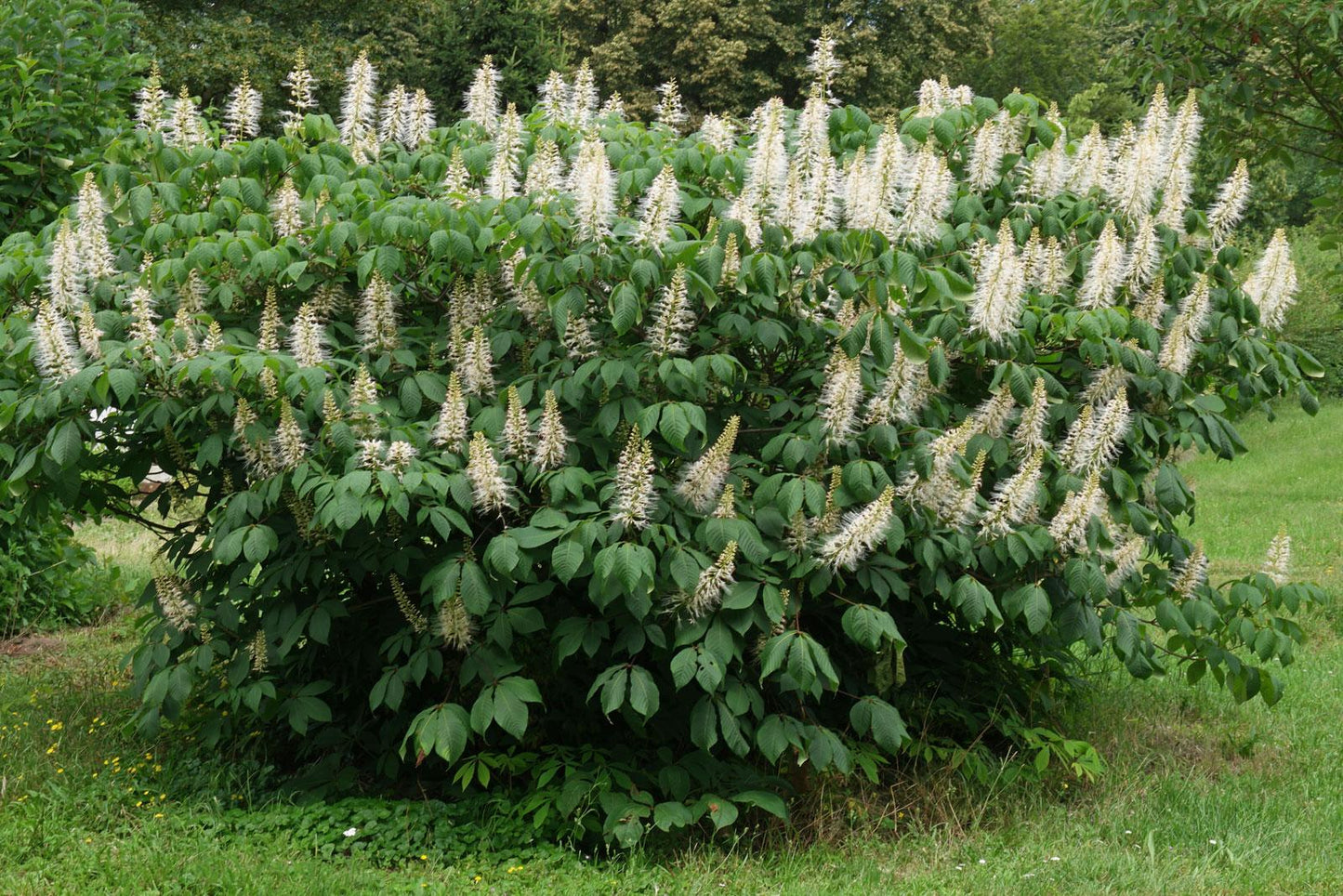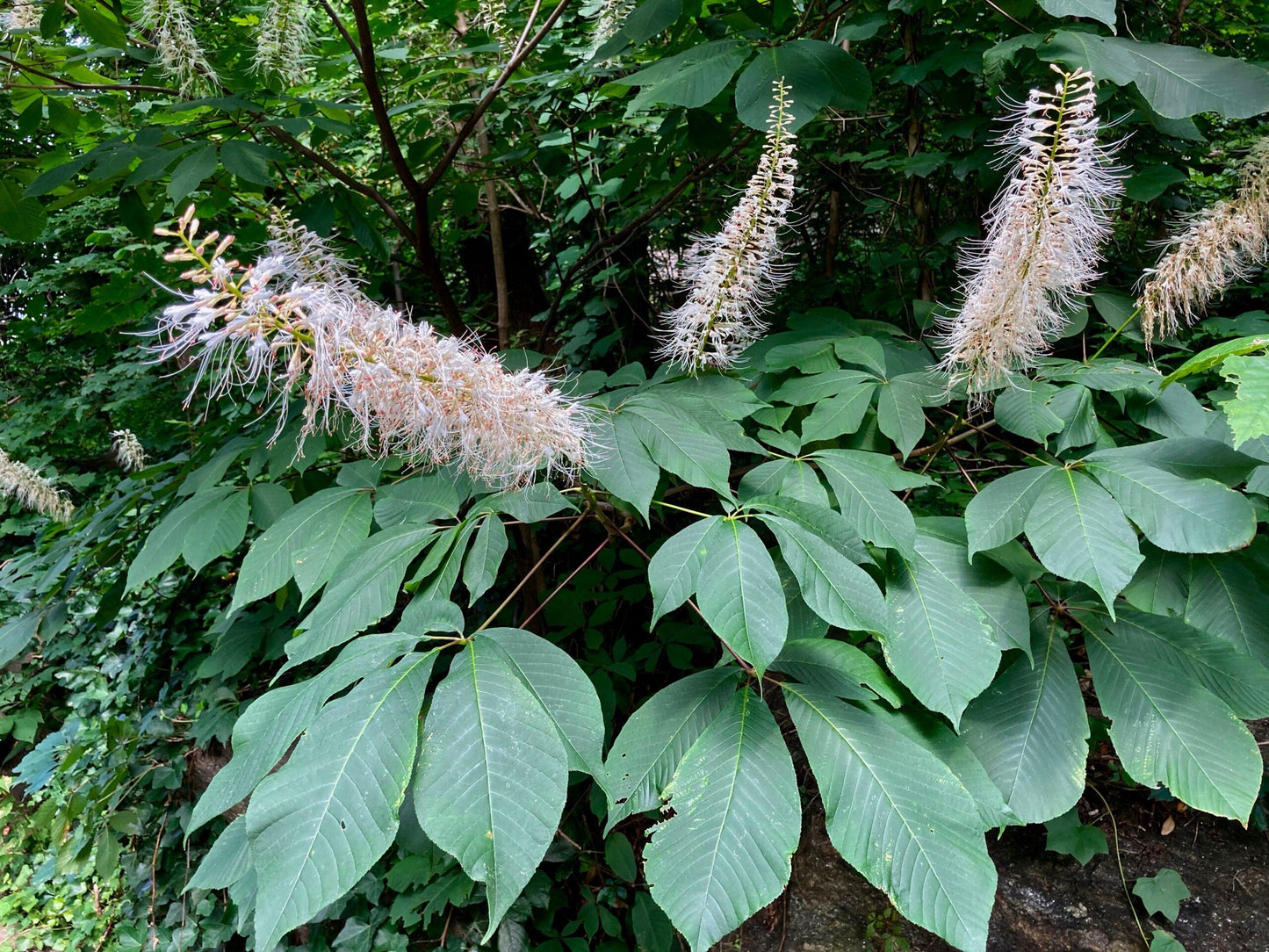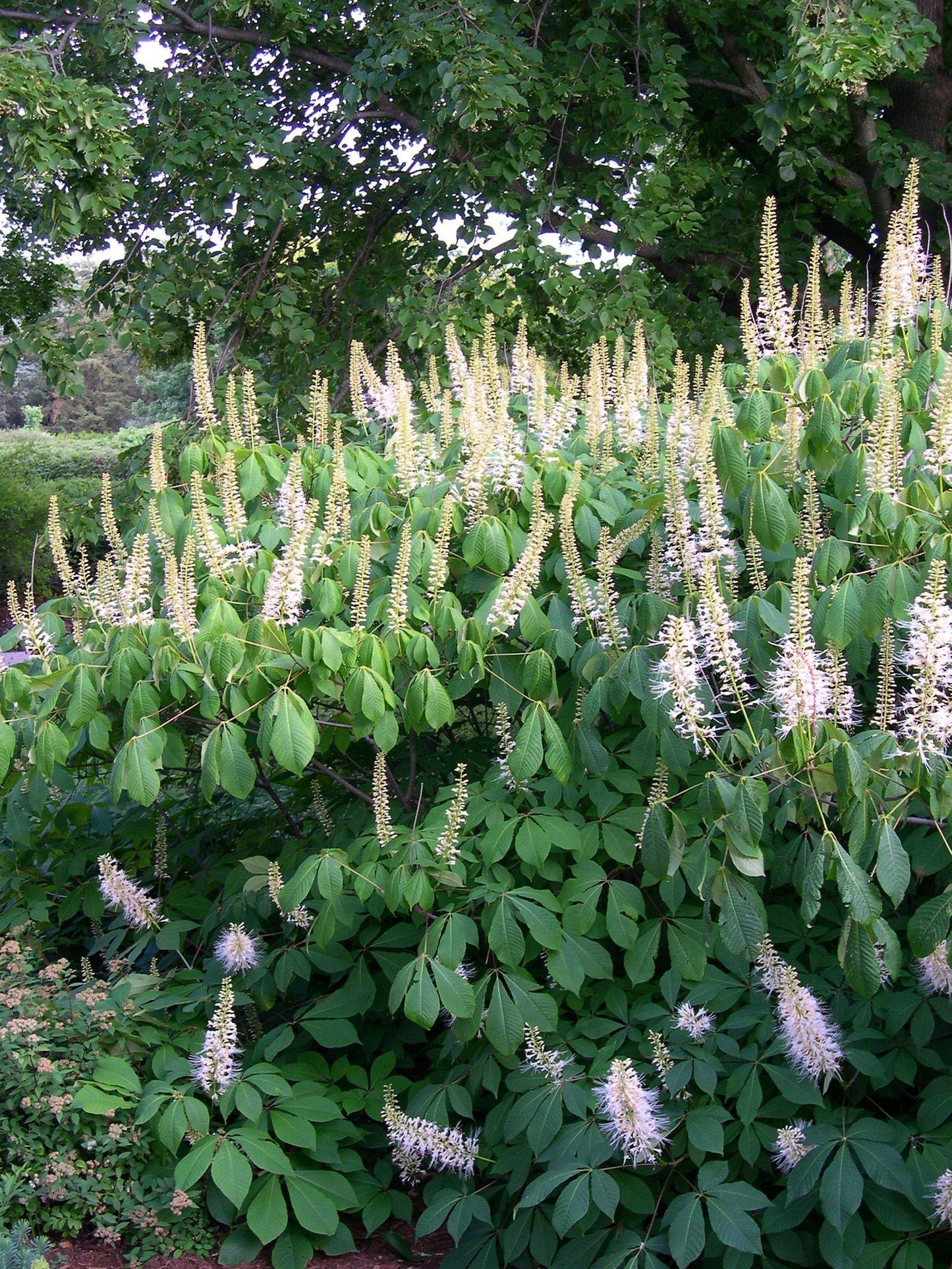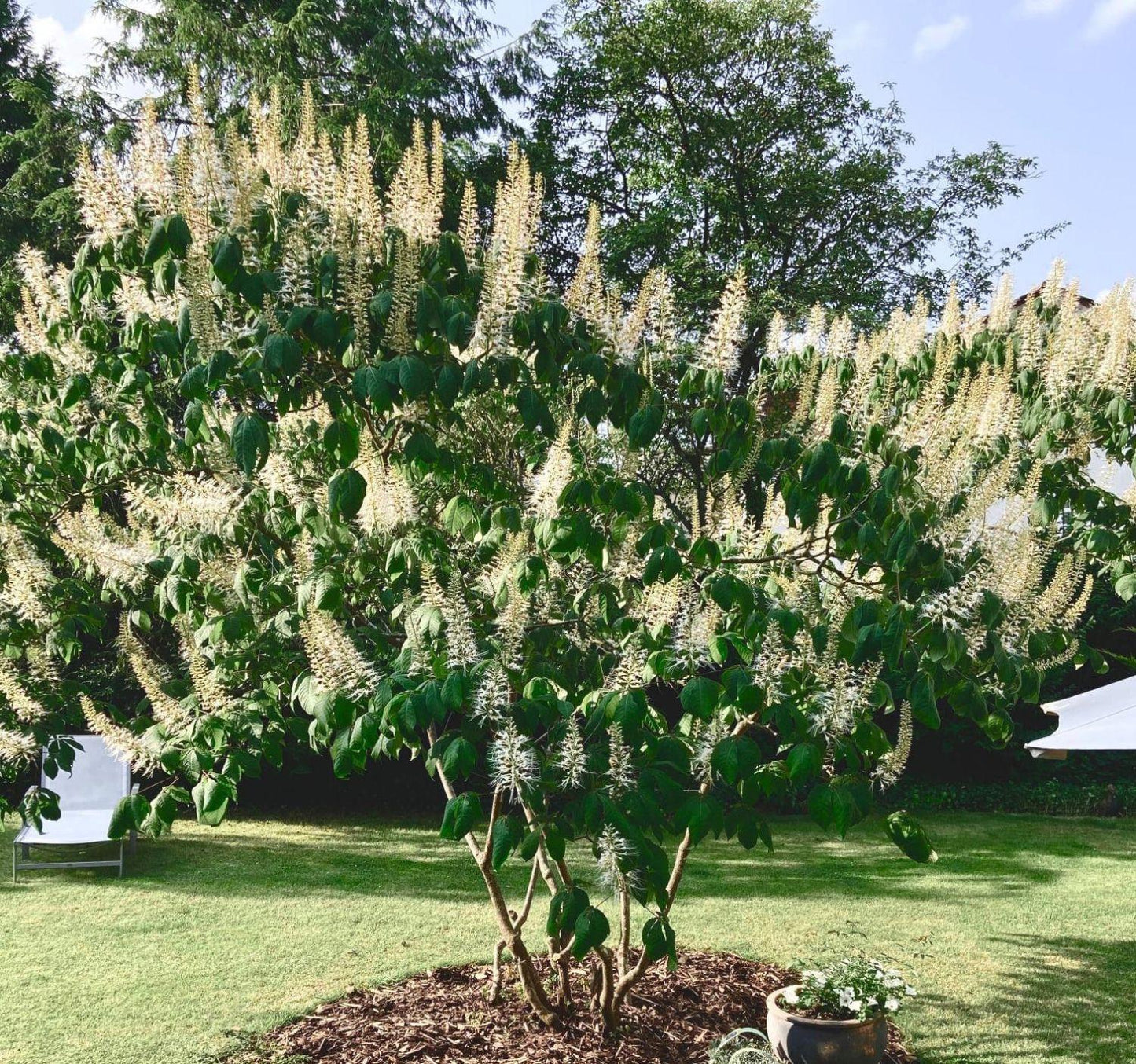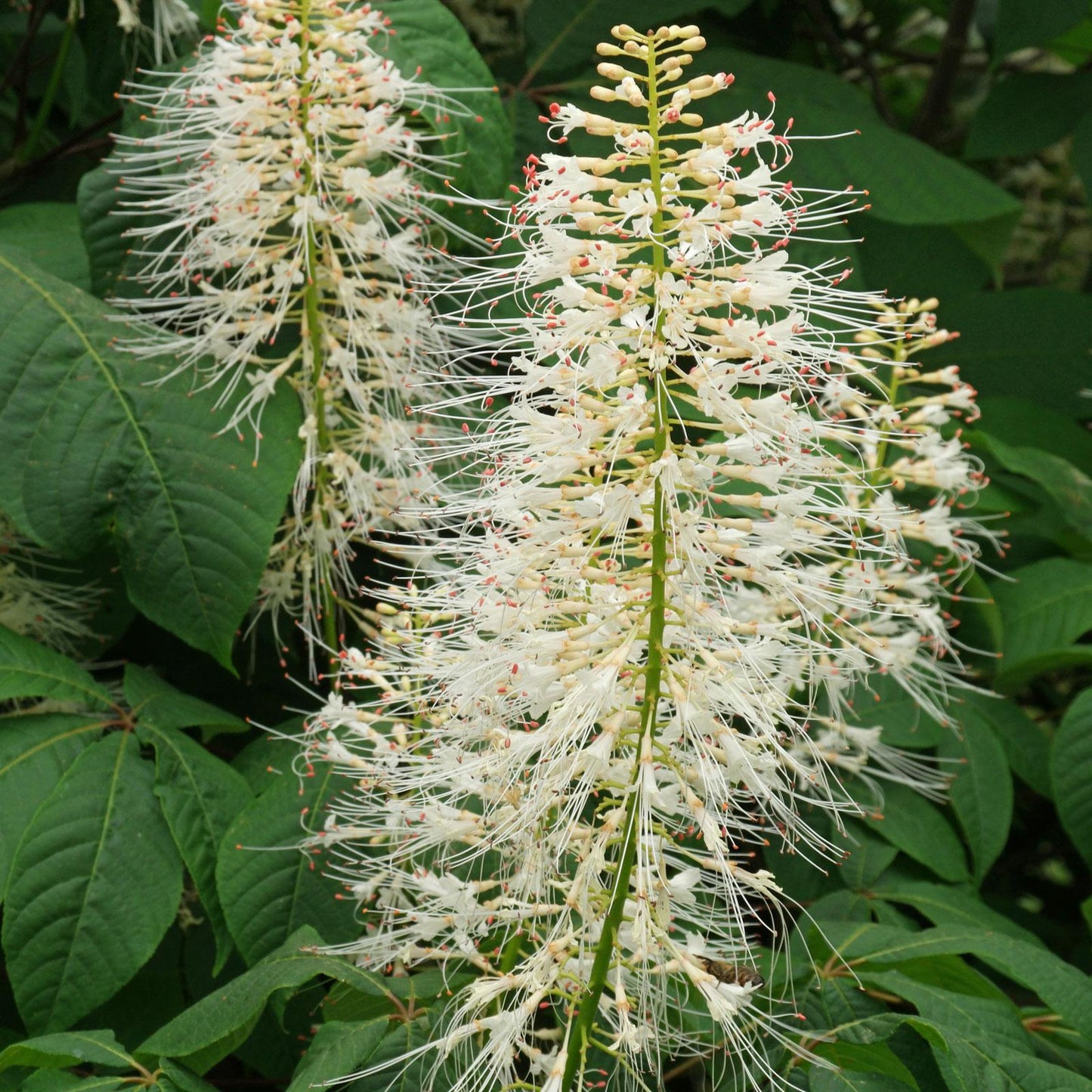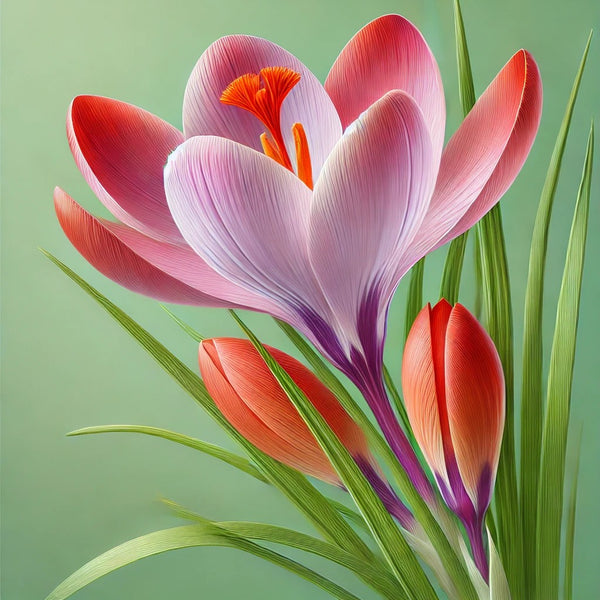1
/
of
24
Bottlebrush Buckeye-Aesculus parviflora-Deciduous Shrub for Shade 3/4' h B&B
Bottlebrush Buckeye-Aesculus parviflora-Deciduous Shrub for Shade 3/4' h B&B
Regular price
$1,340.00 USD
Regular price
$1,742.00 USD
Sale price
$1,340.00 USD
Unit price
/
per
Shipping calculated at checkout.
SKU:nsf4005-redcrocus
Couldn't load pickup availability
Aesculus parviflora
Description
Aesculus parviflora, commonly known as the Bottlebrush Buckeye, is a deciduous shrub known for its striking white, bottlebrush-like flower spikes that bloom in mid-summer. This plant is native to the southeastern United States and is prized for its ornamental value and ability to thrive in shaded garden areas.
Suggested Uses
Ideal for woodland gardens, shaded borders, and naturalized areas. It can also be used as a specimen plant or in mass plantings for a dramatic effect.
Plant Details
-
 Botanical Name: Aesculus parviflora
Botanical Name: Aesculus parviflora -
 Common Name: Bottlebrush Buckeye
Common Name: Bottlebrush Buckeye -
 Size & Growth: Typically grows 8-12 feet tall and wide
Size & Growth: Typically grows 8-12 feet tall and wide -
 Hardiness Zones: 4-8
Hardiness Zones: 4-8 -
 Foliage Type: Deciduous
Foliage Type: Deciduous -
 Bloom Time: Mid-summer
Bloom Time: Mid-summer -
 Growth Rate: Moderate
Growth Rate: Moderate -
 Light Requirements: Partial to full shade
Light Requirements: Partial to full shade -
 Attracts Pollinators: Yes, attracts bees and butterflies
Attracts Pollinators: Yes, attracts bees and butterflies -
 Indoor Friendly: No
Indoor Friendly: No -
 Container Friendly: No
Container Friendly: No -
 Deer Resistant: Yes
Deer Resistant: Yes -
 Pet Warning: Toxic if ingested
Pet Warning: Toxic if ingested -
 Fragrant: No
Fragrant: No -
 Cut Flower: No
Cut Flower: No -
 Grows Well With: Ferns, hostas, and other shade-loving plants
Grows Well With: Ferns, hostas, and other shade-loving plants
Care Tips
-
 Planting Instructions: Plant in spring or fall in well-drained soil
Planting Instructions: Plant in spring or fall in well-drained soil -
 Soil Moisture: Keep soil consistently moist
Soil Moisture: Keep soil consistently moist -
 Soil Type: Prefers rich, loamy soil
Soil Type: Prefers rich, loamy soil -
 Humidity: Tolerates average humidity levels
Humidity: Tolerates average humidity levels -
 Pruning Instructions: Prune in late winter to early spring to maintain shape
Pruning Instructions: Prune in late winter to early spring to maintain shape -
 Winter Care: Mulch to protect roots in colder climates
Winter Care: Mulch to protect roots in colder climates -
 Planting Depth: Plant at the same depth as in the nursery pot
Planting Depth: Plant at the same depth as in the nursery pot -
 Fertilization: Fertilize in early spring with a balanced fertilizer
Fertilization: Fertilize in early spring with a balanced fertilizer -
 Special Care: Ensure good air circulation to prevent fungal diseases
Special Care: Ensure good air circulation to prevent fungal diseases
Share
